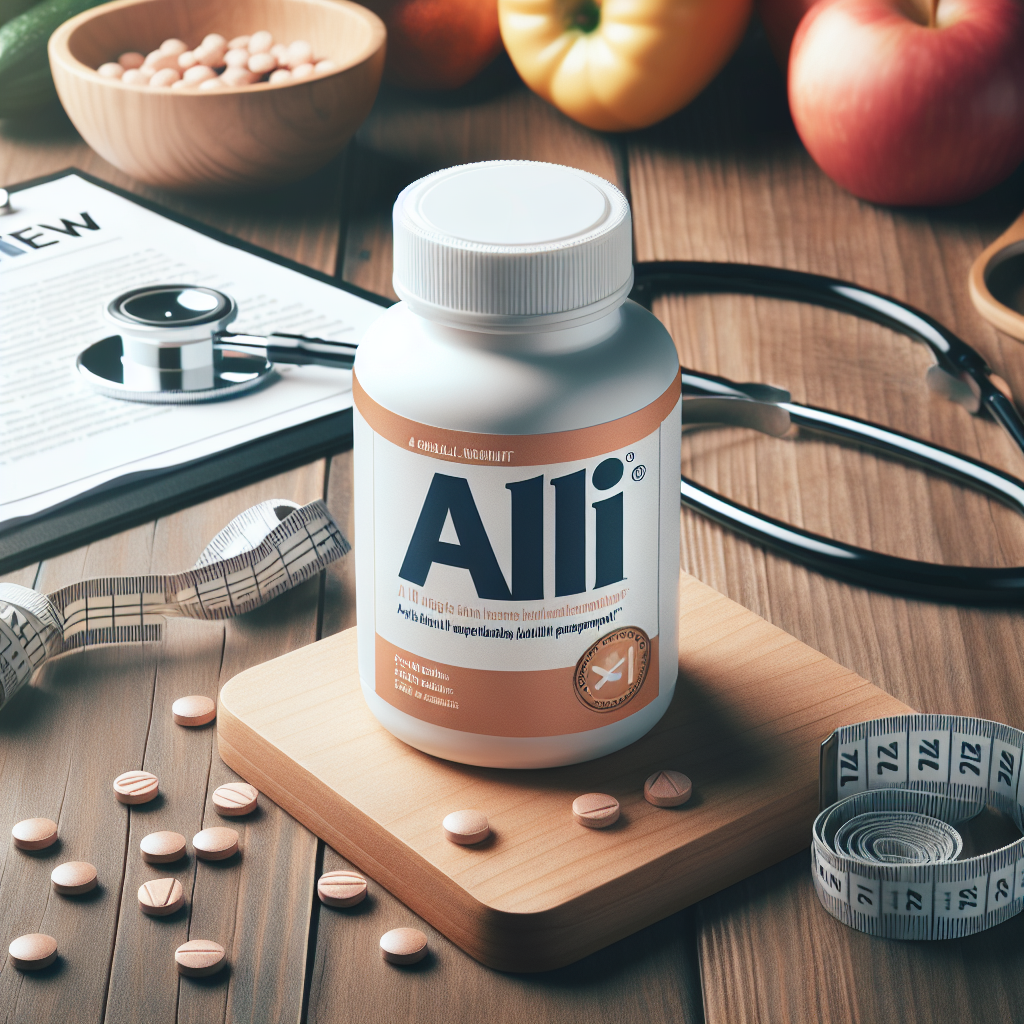Alli is the over-the-counter version of orlistat (60 mg), an FDA-approved weight loss aid for adults with a BMI of 25 or higher. It works in the gut by blocking the enzymes that break down dietary fat, so roughly a quarter of the fat you eat isn’t absorbed. Because it acts locally in the digestive tract, systemic absorption is minimal. Alli is intended to be used alongside a reduced-calorie, low-fat diet and regular physical activity.
Features
– Active ingredient: orlistat 60 mg per capsule
– Mechanism: inhibits gastrointestinal lipases to reduce absorption of about 25% of dietary fat
– Non-stimulant; minimal systemic absorption
– Over-the-counter availability (no prescription required)
– Labeled use: 1 capsule with each fat-containing meal, up to 3 times daily
– Intended for adults with BMI ≥25
– Typically paired with a daily multivitamin at bedtime (A, D, E, K) due to reduced absorption of fat-soluble vitamins
– Often includes access to online/app-based diet and support resources
– Works only on fat calories (not carbs or protein)
Pros

– Clinically proven to produce modest additional weight loss beyond diet alone when used as directed
– Non-stimulant option (no jitters, no heart-rate elevation)
– Can improve some cardio-metabolic markers (e.g., small reductions in LDL cholesterol) as weight comes off
– Encourages adherence to a lower-fat eating pattern, which also minimizes side effects
– Widely available without a prescription
Cons
– Gastrointestinal side effects are common, especially with higher-fat meals: oily/loose stools, urgency, gas with discharge, possible spotting that can stain clothing
– Requires consistent low-fat eating; side effects serve as a deterrent to high-fat meals
– Can reduce absorption of fat-soluble vitamins; requires separate multivitamin timing
– Weight loss is typically modest; results vary and depend heavily on diet adherence
– Potential drug interactions (e.g., cyclosporine, warfarin; separate from levothyroxine); rare cases of severe liver injury reported
– Not suitable for everyone (contraindicated in chronic malabsorption syndrome or cholestasis; not for pregnancy or breastfeeding; not for children)

Effectiveness snapshot
– Expect modest, incremental loss when combined with a reduced-calorie, low-fat diet—on average a few extra pounds over months versus diet alone. Best results occur with consistent use, calorie control, and regular activity.
Who might like it
– Adults seeking a non-stimulant, OTC aid to complement a structured, low-fat, calorie-reduced diet
– People who want a behavioral nudge to avoid high-fat foods
Who should be cautious or avoid
– Those with gallbladder issues, a history of kidney stones, chronic malabsorption, or cholestasis
– Anyone taking interacting medications (consult a pharmacist or clinician)
– Individuals unable or unwilling to maintain a low-fat diet
Bottom line
Alli can be a useful adjunct for modest weight loss if you’re committed to a low-fat, calorie-controlled eating pattern and can tolerate the GI side effects. It’s not a standalone solution, but for the right person, its non-stimulant, OTC profile and evidence base make it a reasonable tool within a broader weight management plan. As with any medication, check the label carefully and talk to a healthcare professional if you have medical conditions or take other medications.

